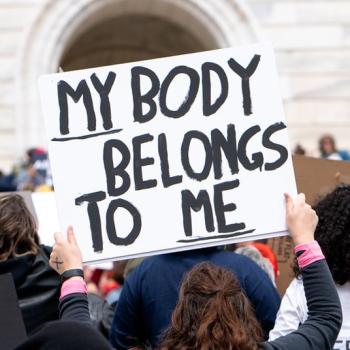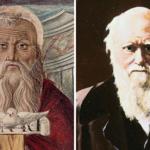North Dakota State Representative Brandon Prichard set off alarms among lovers of democracy when he declared that the Issue One Vote in Ohio should be ignored. Ohio voters enshrined into the state constitution the right to an abortion with 56.6% voting “yes.” Somehow, Rep. Prichard felt obligated to call the results in Ohio into question. He makes an extremely troubling observation: Conservatives are for direct democracy when they win; opposed to it when they lose. “Direct democracy should not exist.”
Nor is Prichard the only Republican making the argument against direct democracy. Rick Santorum argues that we shouldn’t have a direct democracy when voting on social issues. Santorum criticized Ohio for putting “sexy” issues on the ballot together. Then he said, “It was a secret sauce for disaster in Ohio. I don’t know what they were thinking. That’s why, thank goodness that most of the states in this country don’t allow you to put everything on the ballot. Because pure democracies are not the way to run a country.”
Mr. Santorum doesn’t tell the full truth about how many states allow direct democracy on their ballots. According to a survey by Ballotpedia, 24 states allow citizens to vote on legislatively referred statues, 49 allow votes on legislatively referred amendments, 21 on initiated statue, 18 on initiated amendment, 23 on veto referendum, and 18 on recall elections.

What happens when that process fails to give Republicans what they want? North Dakota State Representative Brandon Prichard argues that Ohio’s Issue 1 vote in Ohio should be ignored. He says:
Democracy has always been an ambiguous term. James Kloppenberg, in Towards Democracy, writes, “There is no single, essential, unchanging idea of democracy; its meanings have changed over time and been debated at every moment.”
What Is Direct Democracy
What Prichard bewails as “direct democracy” has a more precise defining term: “Popular sovereignty. The principle of popular sovereignty holds that the will of the people is the sole source of legitimate authority. Concerns about popular sovereignty are not unusual in history. “Even partisans of democracy have expressed misgivings about the people’s capacity to exercise judgment.
Prichard seems to be complaining about the principle of popular sovereignty. The principle holds that the source of political legitimacy is the will of the people. I suppose that the will of the people of Ohio went against the will of Rep. Prichard and he, in a prickly mood, insists that the election be thrown out. In his view, popular sovereignty represents chaos.
In other words, politicians like Prichard are for popular sovereignty with his side wins, but against it when his side loses. He doesn’t wish to be bothered with the messy aspects of democracy – endless negotiation and compromise between completing values. The irony here is that Rep. Prichard is part of the illiberal populism of MAGA and represents a perversion of democracy.
Democracy from Greece to the USA
In ancient Greece, where direct democracy first made its way out of the primeval muck of political ideas, the rich and the intellectuals were afraid of democracy. They deplored the “insolence, anarchy, wastefulness, and shamelessness” that the prevalence of false beliefs facilitated. The historian Thucydides, another citizen of democratic Athens, blamed the defeat of Athens by Sparta on the power of the ordinary people of Athens, and their susceptibility to manipulation by mendacious orators.
Democracy before the French Revolution was generally held to be a fool’s paradise, or worse. At the zenith of direct democracy in ancient Athens, one critic called it a “patent absurdity”—and so it seemed for centuries afterward to political theorists from Plato to James Madison.
Thomas Jefferson, the most passionately democratic of eighteenth-century thinkers, became increasingly ambivalent about those who considered him their champion. In a letter written in 1820, the seventy-seven-year-old Jefferson identified this perennial problem: ‘I know of no safe depository of the ultimate powers of the society but the people themselves,’ he wrote. “If we think them not enlightened enough to exercise their control with a wholesome discretion, the remedy is not to take it from them, but to enlighten their discretion.” Despite his genuine preference for democracy over monarchy or aristocracy, Jefferson did not identify the “we” charged with enlightening the people’s discretion or explain what justification “we” have for presuming to instruct them.
What Santorum and Prichard are looking for is a modern version of the Massachusetts Puritan Colony. Puritan magistrates and clergy spent most of the seventeenth century complaining about profane activities that triggered God’s displeasure. The list of social sins was long: it included disorderly speech, crime, idleness, contempt for authority, intemperance, gambling, and adultery.
According to historian John Fea, members of Massachusetts society who posed serious threats to orthodoxy were removed from the colony. Anne Hutchinson, for example, in her courageous efforts to follow her conscience on religious matters resulted in her banishment from the colony. Roger Williams was also expelled from the colony for his “baptist” ideas. Members of the Society of Friends (Quakers), with their aggressive proselytizing and their claim that God spoke to them directly, posed an even graver threat to the social order of the city on a hill. Between 1659 and 1661, four Quakers—the so-called “Boston martyrs”—were executed for their religious beliefs. The Puritans of Massachusetts Bay allowed their fear of religious diversity and their dogged defense of one specific reading of the Bible to lead them, ironically, toward intolerance.
Santorum and Prichard would prefer the demise of democracy by placing all decisions in the hands of the legislature. This points in the direction of the slippery slope towards fascism that a zealot, emotive religious subjectivism and populism have put on.
How odd for populists to oppose direct democracy. How odd that small government, and “I don’t want government interference” proponents are now howling about the evils of direct democracy. How odd that Santorum wants to put major decisions in the hands of elected representatives at a time when trust in elected representatives has rarely been lower.
Remember We Are the Most Pro-Democracy Nation
Political scientist James Miller says, “I absorbed a number of political pieties that were widely shared in postwar America. I was taught that we were lucky to live in an exceptional society, devoted to life, liberty, and the pursuit of happiness. And I was taught that I had a duty (my mother believed it was God-given) to make this exceptional society an even better place, in part by exercising my political rights, not only to vote but also to think for myself and to speak out against perceived injustices”.
Miller’s optimism about democracy needs to have a new infusion into the American spirit: “I have lived long enough to appreciate the fragility of political institutions that are responsive to citizens, however limited that responsiveness may currently be. I have come to appreciate as well the need for some measure of political representation, legitimized through voting, and also the value of having organized political parties, inevitably hierarchical in their structure, that nevertheless continue to fight for a more informed public and a more secure right to vote, supplemented by more opportunities for ordinary people, and not just professional politicians, to participate, in a thoughtful way, in making the decisions that affect the shape of a large and diverse society. And I am struck by the progress we have made as a nation, and the polyglot expansion of our citizenry as a whole, and the generosity with which Americans, at their best, have conceived of popular sovereignty in pluralistic terms. For all its faults, and despite profound racial tensions that persist in the wake of a very bloody civil war, the United States has evolved into the world’s most striking ongoing experiment in cosmopolitan self-governance.”
When popularly elected politicians question democracy in any form, the alarm sounds. With Demosthenes, the most famous Athenian orator, we should rise to praise our nation for its “spirit of compassion for the helpless, and of resistance to the intimidation of the strong and powerful; it does not inspire brutal treatment of the populace,” nor does it encourage “subservience to the rulers of the day.”
Never tire of singing the song of democracy.

















